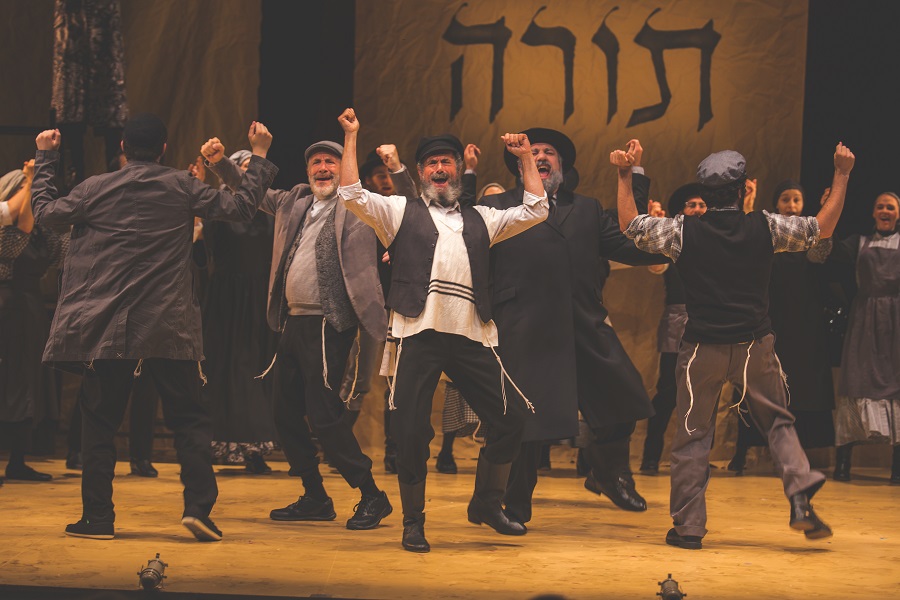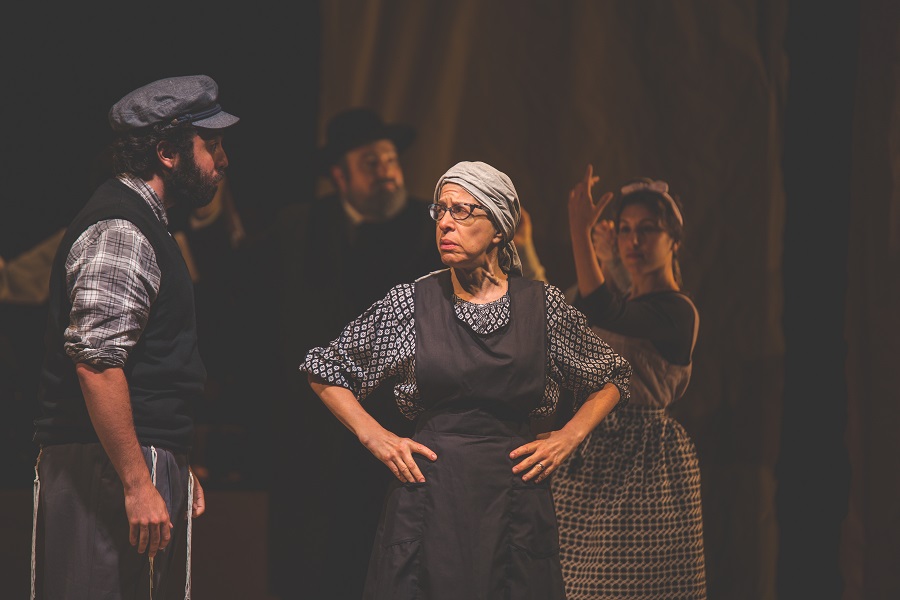Joel Grey, best known for his Tony- and Oscar-winning portrayal of the Emcee in Cabaret, has had a storied career in theatre and film, including Tony nominations for his performances in George M!, Goodtime Charley, The Grand Tour, as well as for his 2011 co-direction of The Normal Heart with George C. Wolfe. His staging of Fiddler on the Roof in Yiddish (Fidler Afn Dakh), produced by National Yiddish Theatre Folksbiene at the Museum of Jewish Heritage in New York City, runs through Nov. 18.
RUSSELL M. DEMBIN: You’ve said that you decided to direct Fidler Afn Dakh to honor your father, Mickey Katz, who was probably best known for his Yiddish parodies of American popular songs. What do you think he’d say about this staging of Jerry Bock, Sheldon Harnick, and Joseph Stein’s classic musical?
JOEL GREY: I know my dad would be very pleased because there are so many people—non-Yiddish speakers and non-Jews—who are responding to this Yiddish Fiddler. He’d be pleased that it is opening a dialogue, because the more you open the dialogue, the more understanding comes right along with it. We had many actors who auditioned who never spoke Yiddish, and yet they knew there was something in this that would speak to everyone, and which would ultimately be universal, which I’m pleased it turned out to be.
What’s the most important lesson you learned from your dad?
Having respect for the audience. When we would go to parties he would be the last one there until everyone was off the dance floor. He really thought that you had to respect the audience and the people around you.

Like many who’ve seen it, I found your production very moving. Could you talk about what makes a Yiddish Fiddler relevant in 2018?
The Yiddish Fiddler is like any other story, and unfortunately the world has too many of those stories. How can any of us turn our heads away from those tragedies? And yet we are still doing it—it’s in The New York Times every morning.
Last summer I watched Human Flow, a film directed by Ai Weiwei about immigrants all over the world getting put out of their homes. It was stunning and deeply sad that all these years later, human nature doesn’t seem to have changed enough.
With a majority of the cast new to the Yiddish language, the rehearsal process must have been unique. Could you talk a bit about your approach?
Half of our cast were not Jewish, and there were a few Yiddish speakers among the group, but most of them needed to work on the language the way that opera singers learn Italian in order to perform at the Met. I personally worked with everyone first in English. We did that first, and later on they learned the Yiddish version (they were coached daily by a specialist at Folksbiene, associate artistic director Motl Didner). But we worked in English first, because they needed to know the truth of the emotional scenes.
You’ve mentioned that you once wanted to play Tevye. What attracted you to that role?
I think it is one of the greatest roles in musical theatre. When I saw Zero Mostel play the part, his portrayal captivated me, and I had an immediate feeling for the entire story. I had the feelings for the story for many years, always thinking about playing Tevye, being a father and having to face all those challenges. I think I was up for the part at some point, but it never happened. Directing the show is a wonderful way of fulfilling the dream.
What’s an especially useful Yiddish expression?
Genug iz genug, which means, “Enough is enough.”

In 2016 you published your memoir, Master of Ceremonies. What advice would you give to someone writing a memoir?
Have compassion for yourself.
What’s the funniest joke you’ve ever heard?
What’s funny to me might be tragic to someone else.
If you weren’t an actor or director, how would you spend your time?
I might be a painter. I am a photographer, and that is how I spend a lot of my time, and that’s my other passion.
If you could visit any time period, which would it be?
Maybe my first 20 years, to go back and relive them, what I know now might be interesting, and then again…
If God exists and you could ask God one question, what would it be?
How did you make this life so beautiful?


